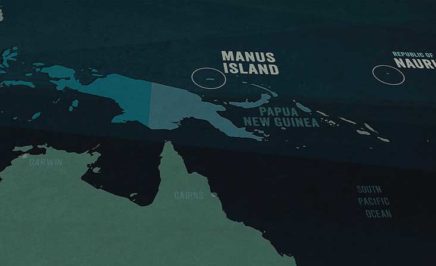Amnesty International today called for a full independent judicial inquiry into the tragic death last month of 22 year-old Aboriginal woman Miss Dhu while in West Australian police custody. This follows yesterday’s announcement of a WA coroner’s inquest and an internal police investigation.
The global human rights organisation mourns the passing of Miss Dhu, who died after three days of incarceration in South Hedland Police Station for unpaid fines. During that period she had twice been returned to the lock-up after being taken to hospital complaining of pain, vomiting, fever and paralysis.
“This is an absolute tragedy and our thoughts and support go out to Miss Dhu’s family and her community,” said Tammy Solonec, Amnesty International Australia’s Indigenous Peoples’ Rights Manager.
“The family want truth and justice for their daughter, sister and niece – Miss Dhu. They want an independent inquiry, and we agree that this very sad death deserves nothing short of a full judicial inquiry, without delay. Miss Dhu’s family can’t wait years for the truth to come out.”
Miss Dhu should never have been in that lock-up. The government has to stop locking up people for being unable to pay fines.
Incarceration rates high
Miss Dhu had been sentenced to incarceration in the lock-up for four days, in lieu of paying a fine of $1000.
“Miss Dhu should never have been in that lock-up. The government has to stop locking up people for being unable to pay fines.
“There should have been more culturally appropriate alternatives available than locking up people, and we need systems in place so that this will never happen again,” said Tammy Solonec.
“The over-representation of Aboriginal and Torres Strait Islander people in the justice system of WA is at an appallingly high rate. As of 26 June 2014, 43% of women incarcerated in WA prisons were Indigenous,” said Tammy Solonec.
We need an alternative system
Amnesty International urges the West Australian Government to reconsider its system of people paying off fines at the rate of $250 per day by doing time in police lock-ups, a system that disproportionately affects people on low incomes.
Police lock-ups should only be used where no other options are available to them due to these facilities being inappropriate for holding people for any length of time as they do not provide for immediate access to medical and other services.
In addition, the jurisdiction of the Office of the Inspector of Custodial Services does not extend to police lock ups. Longer term, Australia needs to ratify the Optional Protocol to the Convention Against Torture and set up a National Preventative Mechanism that will allow the United Nations to inspect all places of detention.





